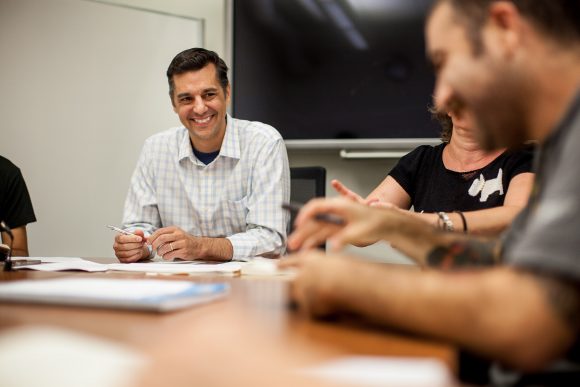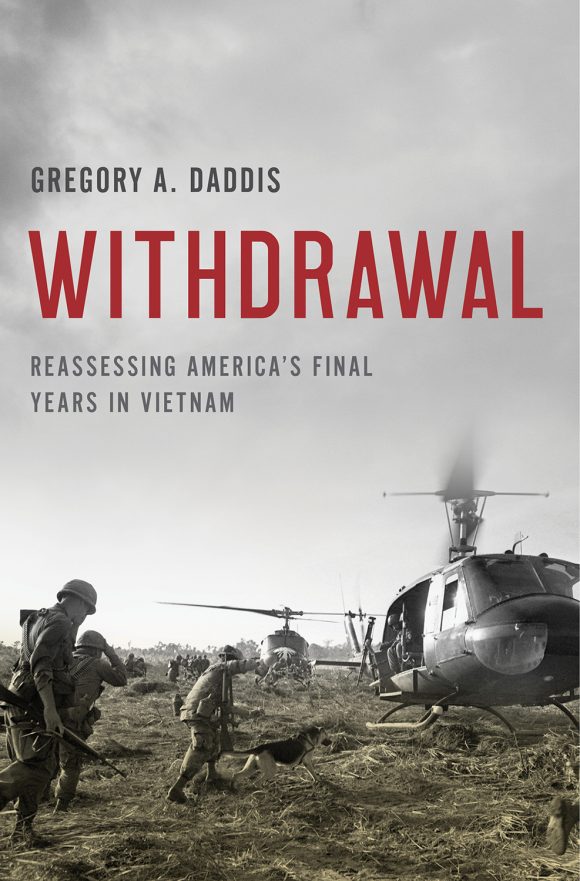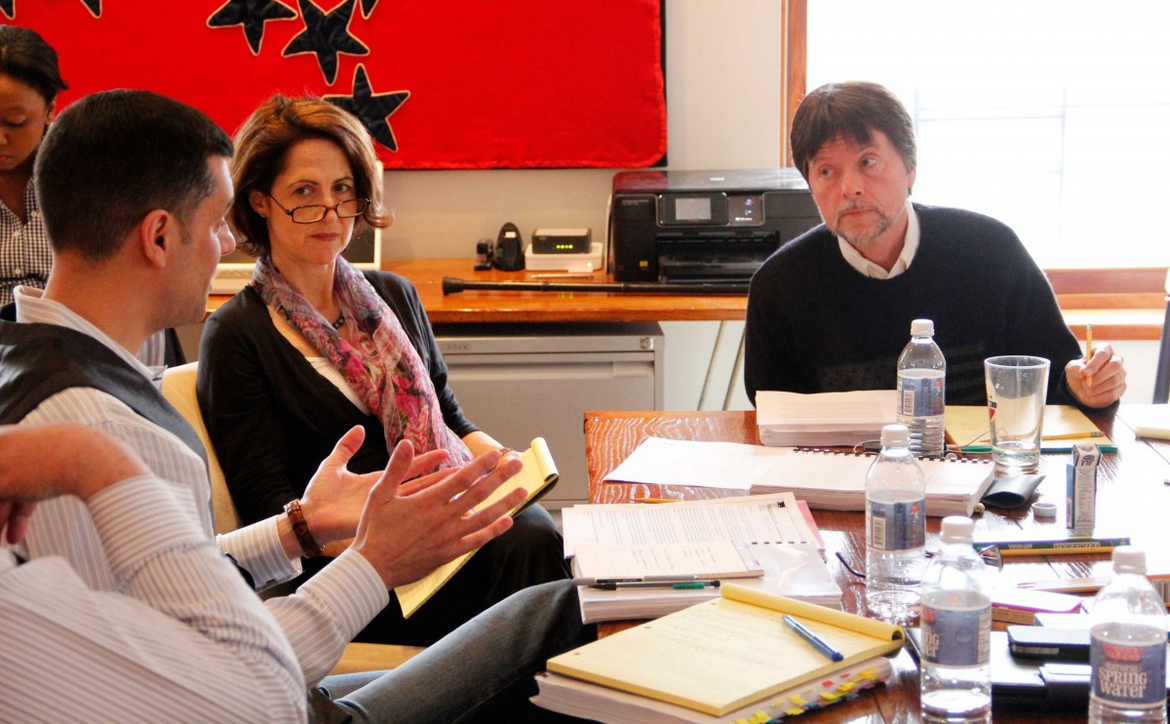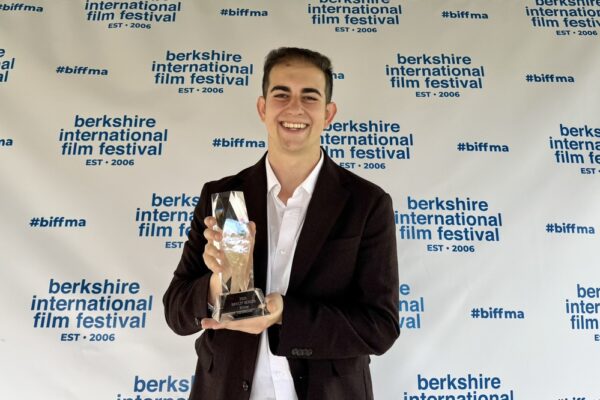It’s never comfortable to stand face to face with our limitations. But five decades later, Americans are still working through that discomfort as a legacy of the Vietnam War, says historian Gregory Daddis, director of Chapman University’s master’s program in War and Society.
“The reason the war resonates for so many in America is that it represents the first time in modern history that the United States had to confront the limits of its own power,” say Daddis, Ph.D., associate professor in the Department of History. “Because of that truth, the war remains a visceral moment in our history. It’s why the study of this war and how to deal with those limits is important for all of us.”

For many, the war was also the first to confront them where they live, as the images of its brutality flashed nightly across their TV screens. That immediacy of experience is about to return, accompanied by sober reflection, as PBS launches its 10-episode documentary The Vietnam War, which premieres Sunday, Sept. 17.
Daddis, a retired Army colonel who served in Operation Desert Storm and Operation Iraqi Freedom, advised filmmakers Ken Burns and Lynn Novick as they developed their 18-hour production.
“I’m hoping that the documentary spurs some national conversation about the war,” Daddis says. “Having been a small part of the process, I can say that the team was immensely committed to showing multiple sides of the conflict – the home front, the view of soldiers, the White House. The value of that approach is to get Americans to consider views they may not agree with but that may lead to a deeper understanding. Revisiting the Vietnam War can be healthy for all of us.”
Unlike some previous Burns documentaries, the film eschews sit-downs with historians and instead focuses on the insights of those who lived the war.
“They wanted the historians to be in the background, so we hear the voices of participants,” Daddis says. “From what I’ve seen so far, it’s an incredibly powerful way to tell the story. So when you watch the film, you see mothers, soldiers, antiwar activists – all sides of the story. It’s compelling.”
 As the PBS film debuts, Daddis also is preparing for the Oct. 2 release of his new book Withdrawal: Reassessing America’s Final Years in Vietnam (Oxford University Press). The book, his third on Vietnam, counters the widespread theory that the U.S. military could have won the war if the politics of the time had allowed it.
As the PBS film debuts, Daddis also is preparing for the Oct. 2 release of his new book Withdrawal: Reassessing America’s Final Years in Vietnam (Oxford University Press). The book, his third on Vietnam, counters the widespread theory that the U.S. military could have won the war if the politics of the time had allowed it.
“The longstanding, prevalent scholarship has revolved around this idea that in 1968, this new commander, Gen. Creighton Abrams, brought a new strategy and the possibility of a ‘better war,’” the professor says. “There’s this sense among some historians that the U.S. was winning the war militarily, but lost it politically.”
That narrative is fundamentally flawed, says Daddis, whose research included poring over documents in the archives of the Richard Nixon Presidential Library and Museum, the National Archives in Maryland, the U.S. Army Center of Military History in Washington, D.C., among other historical records.
“What I’ve tried to do is counter the ‘better war’ thesis, but also to demonstrate that there are some significant limits to American power overseas,” he adds. “I hope to demonstrate some fundamental issues that at their core were Vietnamese and could only be resolved by the Vietnamese. So when we talk about issues of national identity and independence and what it means to be Vietnamese, those issues can only be answered by the Vietnamese themselves.”
During this time of deep exploration and reassessment by Vietnam War historians, Daddis advises that we not fixate on takeaways.
“The best way to read history is to gain perspective rather than to seek lessons,” he says.
He has another hope as well.
“If there’s some reconciling of opposing views, that can be healthy for all of us,” Daddis says. “If the soldier and the antiwar activist converse and come to some sense of understanding, that is not a bad thing at all.”
Display image at top: Chapman historian Gregory Daddis, left, advises filmmakers Lynn Novick and Ken Burns during the planning of their PBS documentary “The Vietnam War.” (Photo: Florentine Films)





Add comment